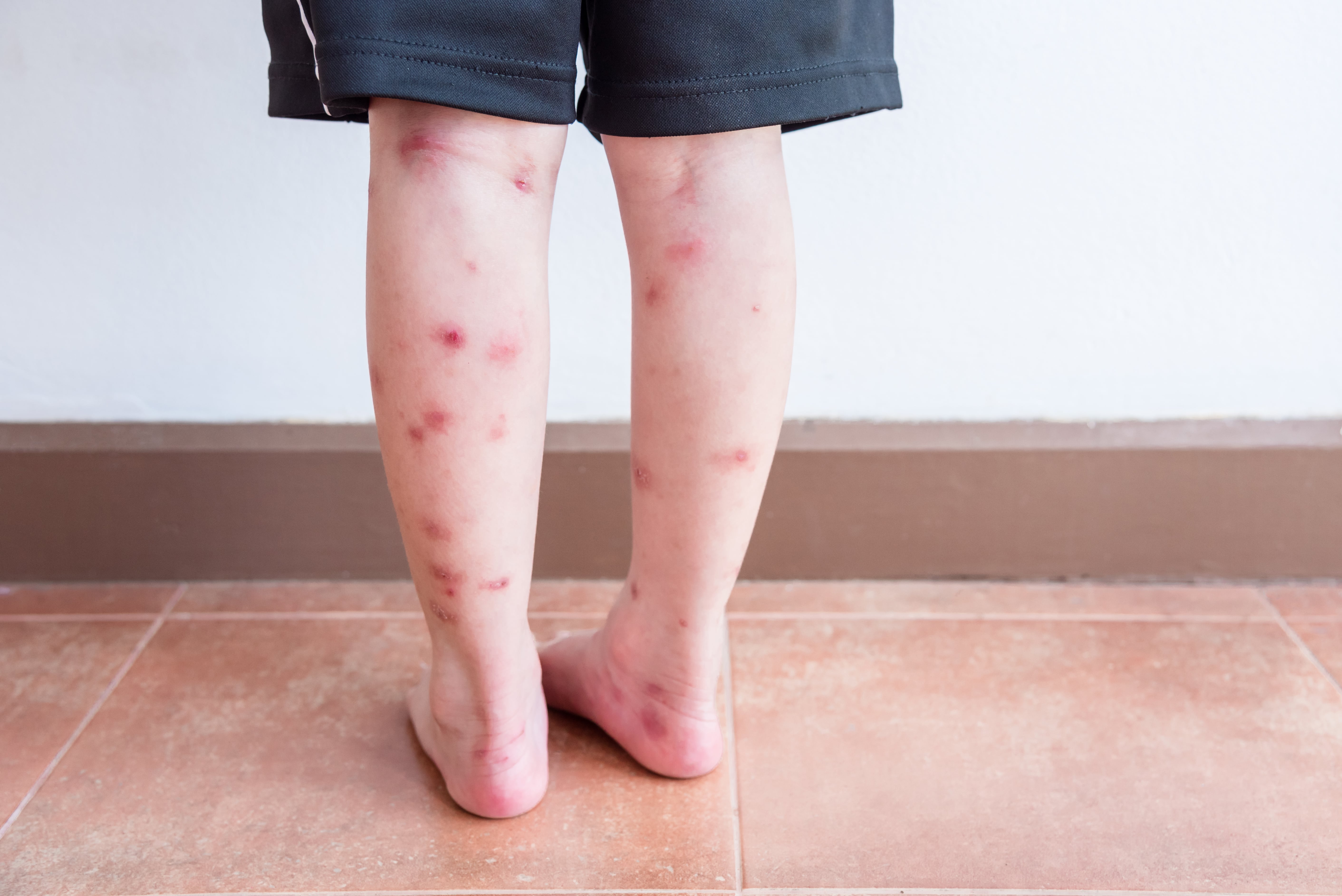We’ve all been there. Staring at a seemingly new red dot wondering, “Is that a bite?” “Where did I get that?” And finally, “What kind of bug could’ve bitten me?” If you’ve recently encountered a bed bug, it’s likely you’ve already looked up bed bug bite treatments. But how can you be sure it’s the right course of action? Before getting into how to treat bed bug bites, let’s take a closer look at identifying them.

What do Bed Bug Bites Look Like?
Bed bug bites are usually painless, and in fact, most people don’t even realize they’ve been bitten right away. It can take anywhere from one to several days before bite marks are visible, and sometimes they’re not visible at all. When bed bug bites do appear, they usually look like slightly raised, red welts in small clusters or a zig zag pattern. Bed bug bites can look similar to that of mosquitoes or fleas, though flea bites usually tend to pop up around the ankles while bed bugs feed on any exposed area of the body. The way to determine if the bite came from a bed bug is to inspect areas of your home for the presence of bed bugs. If bed bugs are found, it may be an indication that that is where the bite came from.
Everyone has a different reaction to bed bug bites, and some won’t have any. So how do you treat bed bug bites if you don’t know what to look for? It just depends on how you feel.
What Are Bed Bug Bite Symptoms?
The most common symptoms caused by bed bug bites are localized itching and irritation. If itching is severe, you may experience anxiety, insomnia and additional skin problems due to continuous scratching. While bed bug bite symptoms may be uncomfortable, it’s important to try resisting the urge to scratch to avoid infection. This can be especially difficult for kids. People with health issues may also be more at risk for infection.
How do You Treat Bed Bug Bites?
There are a wide range of over-the-counter bed bug bites treatments for skin. Topical and oral corticosteroids, antibiotics, and antihistamines can all be used, depending on the person’s symptoms. Experts at Mayo Clinic recommend applying a skin cream containing hydrocortisone or taking an oral antihistamine to relieve itching. In more severe or extensive cases, signs of a severe allergic reaction or infection may occur, in which case it’s best to visit your doctor. How long it takes bed bug bites to go away varies, but restrained scratching and good hygiene are usually enough to prevent secondary infection and speed up the healing process.
The Best Bed Bug Bites Treatment is Prevention
Before having to deal with bed bug bites treatment, it’s important to address the problem. While the bites themselves don’t usually pose a serious medical threat, the impact of a bed bug infestation can be severe. If you’ve seen a bed bug in your home or believe you’ve been bitten by one, contact a pest control professional at Terminix® immediately to schedule a FREE inspection.




